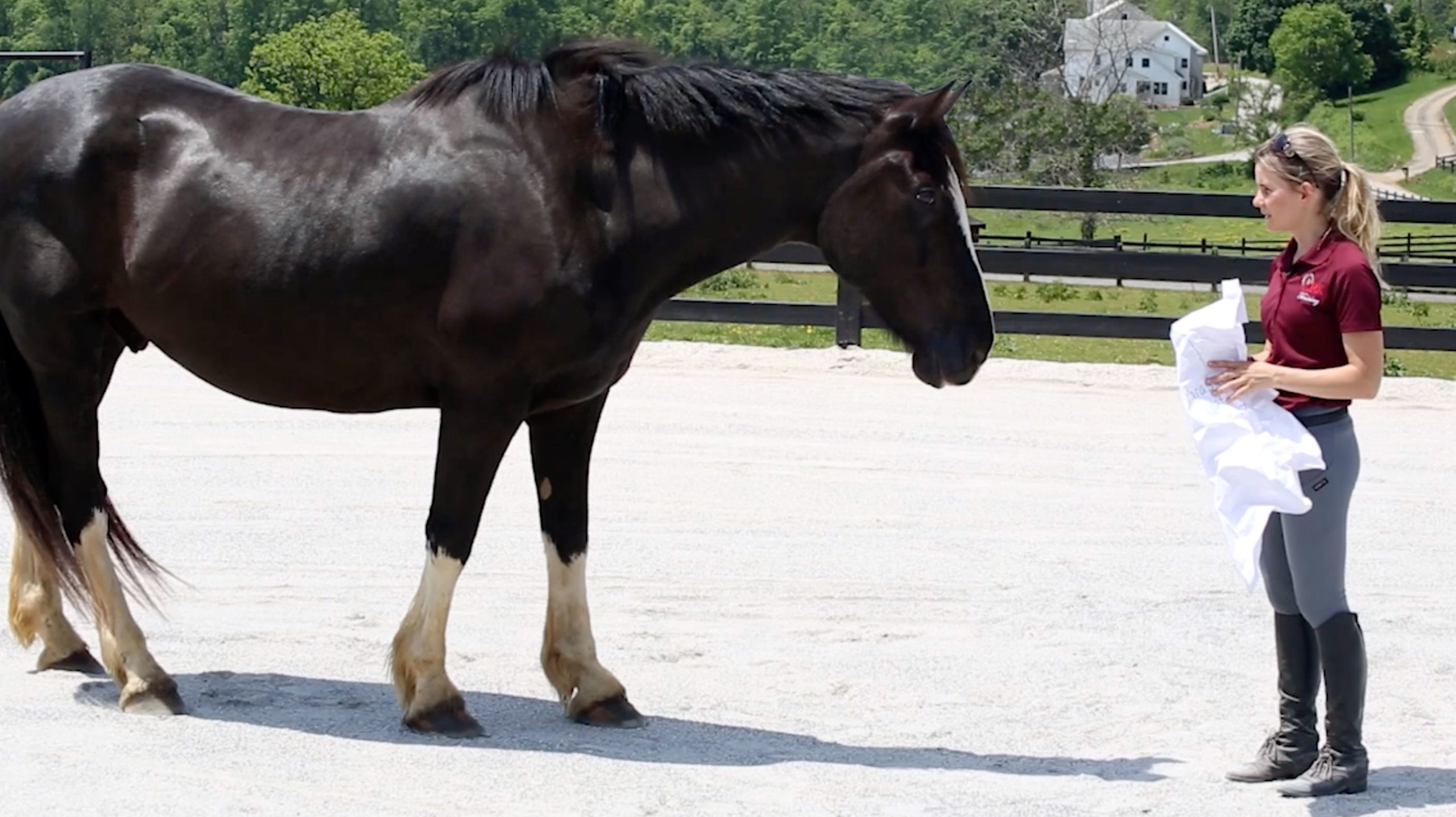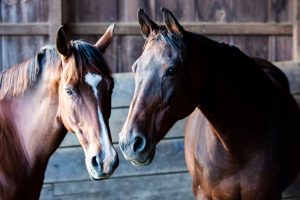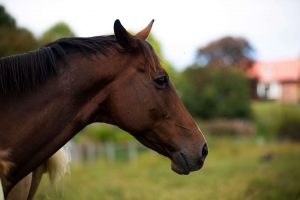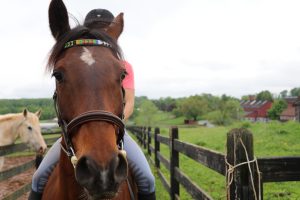The ability to “read” a horse, to know their emotional state and adjust to it, is key for not just being an effective rider, but for truly connecting to a horse, to being in sync and in tune with them.
Great horsemen seem to know what a horse is going to do before he does it, they work in a flowing way, and can adjust to the horse’s changing states.
There are two keys to reading a horse. The first is knowing what to see – what certain expressions or body postures mean.
However, there is another factor that is even more important. Being present.
Present to see the small changes in your horse, but also present to how you feel – important clues to what the horse may be feeling.
In this video, we will be observing a horse named Raleigh, both in a relaxed state, as well as a state of apprehension, then curiosity.
Together, we will notice the small changes that happen in his posture and movements.
Click play below to watch!














16 Responses
Outstanding, very informative video. In my horse I notice her reactions to my brushing her in various areas. It is easy to tell what areas she likes/dislikes being brushed. facial expressions, lip movements, neck movements all contribute to showing her preferences in grooming.
Hi Bill,
So glad you found the video helpful. Noticing your horse’s preferences for grooming spots is an excellent way to show her that you are paying attention and listening. Grooming is a natural boding activity for horses, and they even have body signals to tell each other to move spots or change pressure of the grooming. You mimic this when you groom with awareness of her reactions, which I am sure she appreciates. Thank you for sharing!
Thank you for this. I notice that when my horse is stressed, he tosses his head in a circular movement. This seems to be an attempt to release tension. I also relate to Bill’s comments on grooming spots. My horse will come up, twist his neck and show where he wants to be scratched.
Thanks for watching, Jill! Horses have several stress relief behaviors that somewhat mirror ours, such as yawning and stretching. Awesome that you are paying close attention to what your horse is communicating with those behaviors.
I thought for a long time my horse was relaxed. Turns out she shuts down. it is noticeable by the tightness around her lips
Thank you. Your presentations are always informative.
Thank you for tuning in, Marjorie! So glad you’ve found this helpful.
I have owned my current gelding for 11 years now and we are very attuned to each other. For the last few weeks he has been very affectionate; nuzzling my hair and putting his head in my arms. I respond by hugging him and massaging the crest of his neck, which he loves. He’s been very relaxed and when the ice and snow has suddenly slid off the roof of the indoor he has taken notice but not startled at all. I’ve tried to impress on him that he is safe with me; I’ll protect him. It’s working! The other 2 horses in the indoor freak out every time it happens. I don’t know if this has anything to do with it but he is on a low sugar low starch feed. He just seems calmer.
Thanks so much – my horse would start to heavy breath – literally and nosily – when he became anxious on a trail ride. Let me know to back off or just hop off and calm him, walk him around the object of fear, before mounting up again.
I have a mustang mare, about 15 years old,which I can put a saddle on but not sit on or ride yet. When she’s stressed I notice her splaying her front legs or sometimes looking away as if to say if I am not looking at you you don’t exist. When she is relaxed she’ll nuzzle me or put her neck up against me to be scratched or rubbed, and she’ll walk towards me all loose and with her head low. Now when she’s lying down she’ll let me sit by her, put my arm or body over her, and rub her. I do this whenever i can to help her feel more comfortable and trusting of me.
When my gelding gets nervous/excited, he poops! Up to 4-5 times as we are getting ready for a ride. He also twitches his body skin if he’s not sure about something unknown near him. He’s quite good about investigating new things if he can see and smell them. He is new to me and his cues are a workin progress for me.
Thank you for sharing this information. My 3 year old horse always comes up to me in the pasture with his ears far back(not quite pinned). He seems happy to greet me (and happy to walk to me in the pasture) but even my trainer was put off by his look. Any ideas as to why he is doing this?
My horse a gelding, gets very anxious when we ride into the gelding field and it’s empty because the other geldings are in the barn. Riding into other empty fields or paddocks doesn’t bother him. Is this typical?
Thank you so much. Always enjoy your insights into the different subjects.
Thank you.. excellent information
My horse has reacted to a miniature albino donkey, which was in the paddock, newly arrived, on the property.
The body tensed and he snorted, nostrils were flared.
I realize that I have to introduce him slowly.. a little each day, not under saddle, so he can investigate..
Great video.
S
My lesson horse always puts his ears flat back when I use the curry comb. I have tried several different ones and he does the same. I am extremely gentle when currying and brushing. Should I quit using the curry comb?